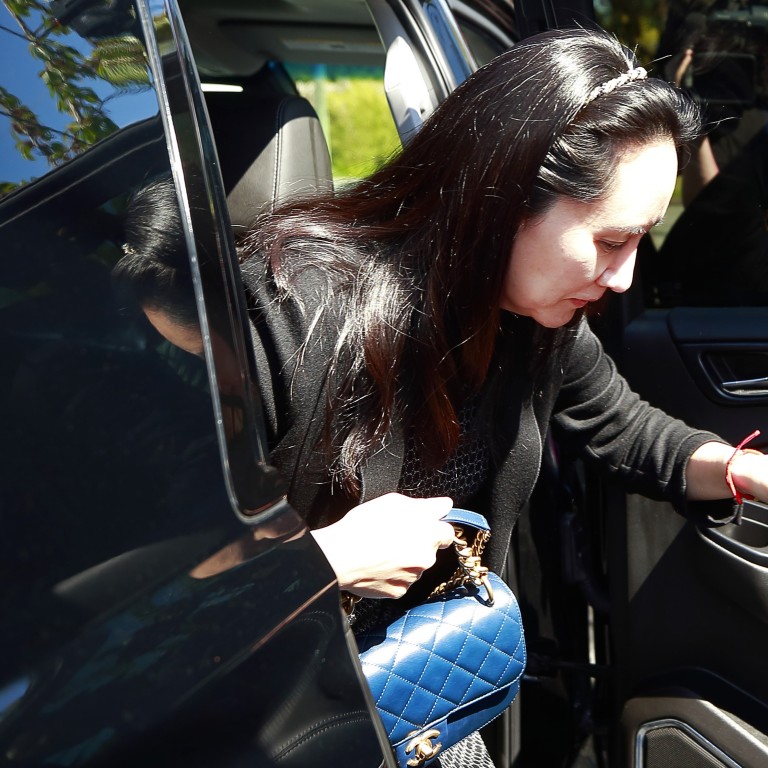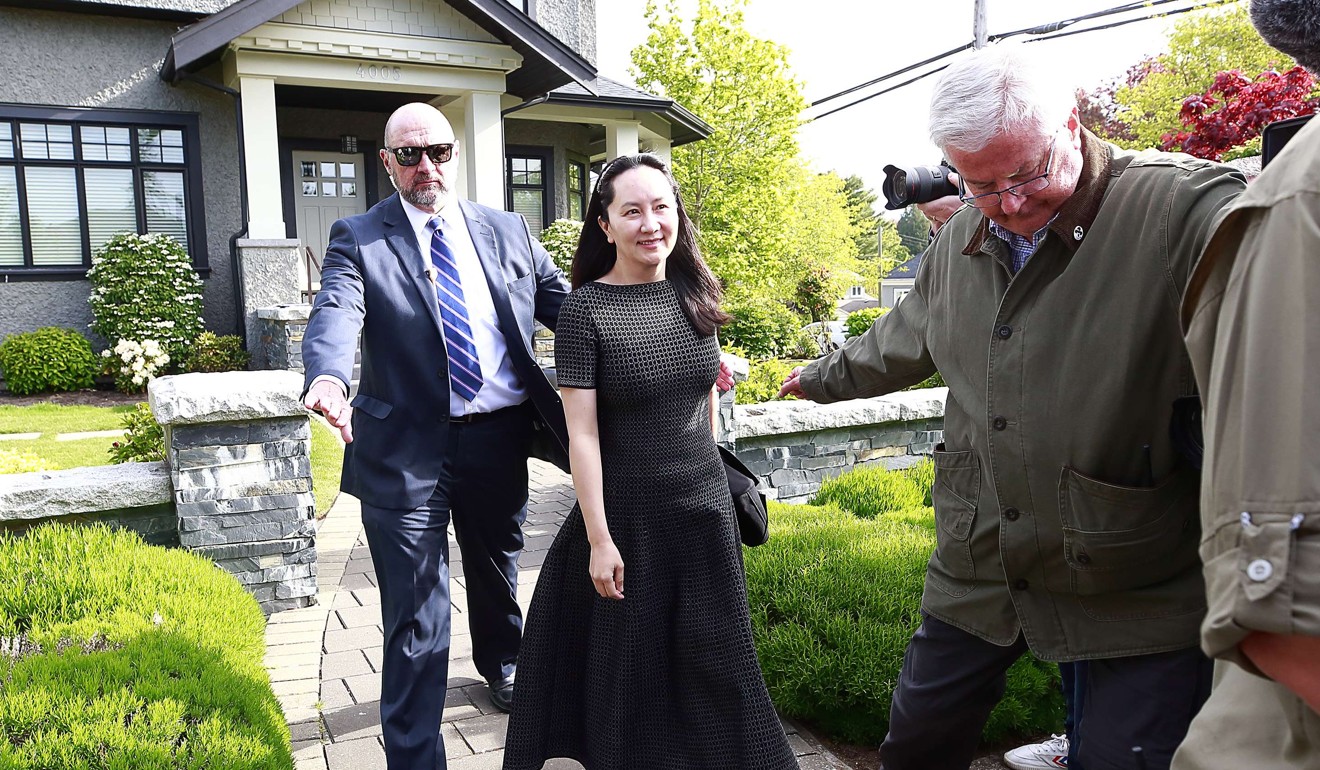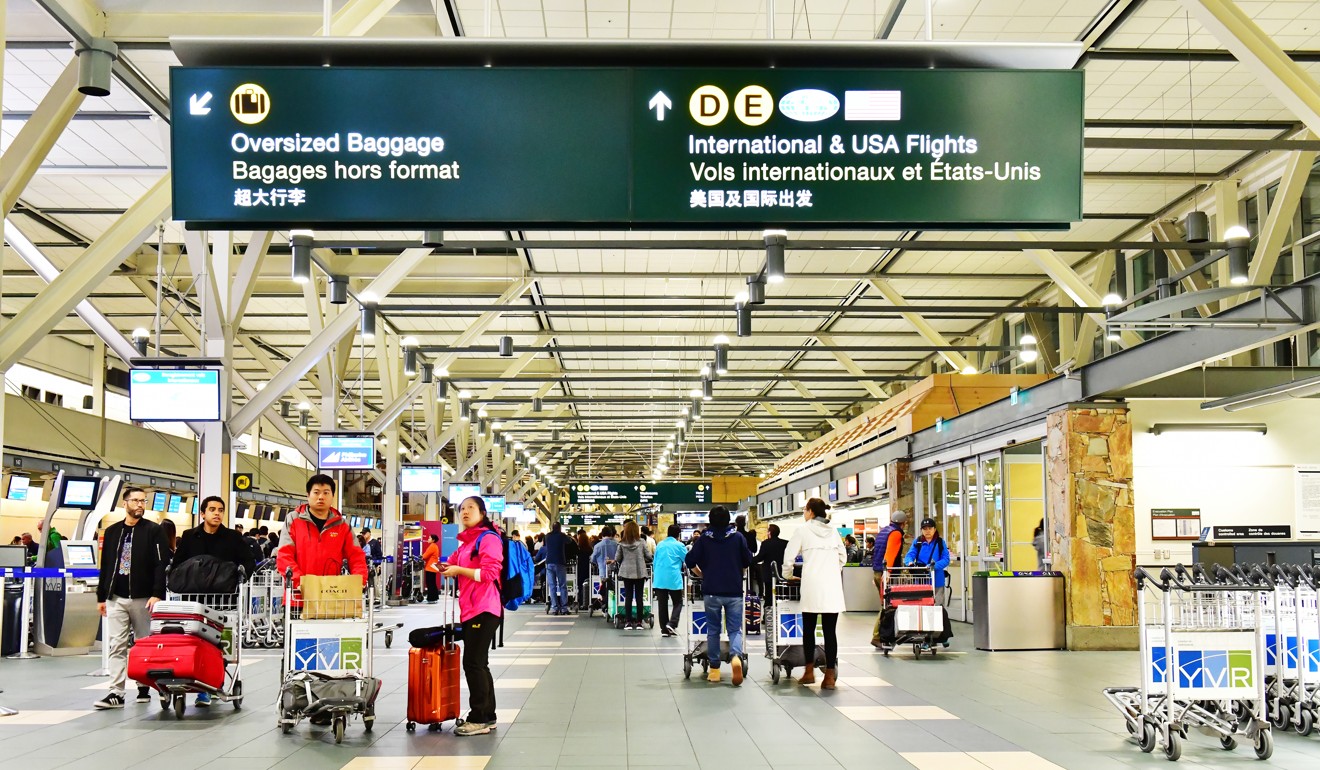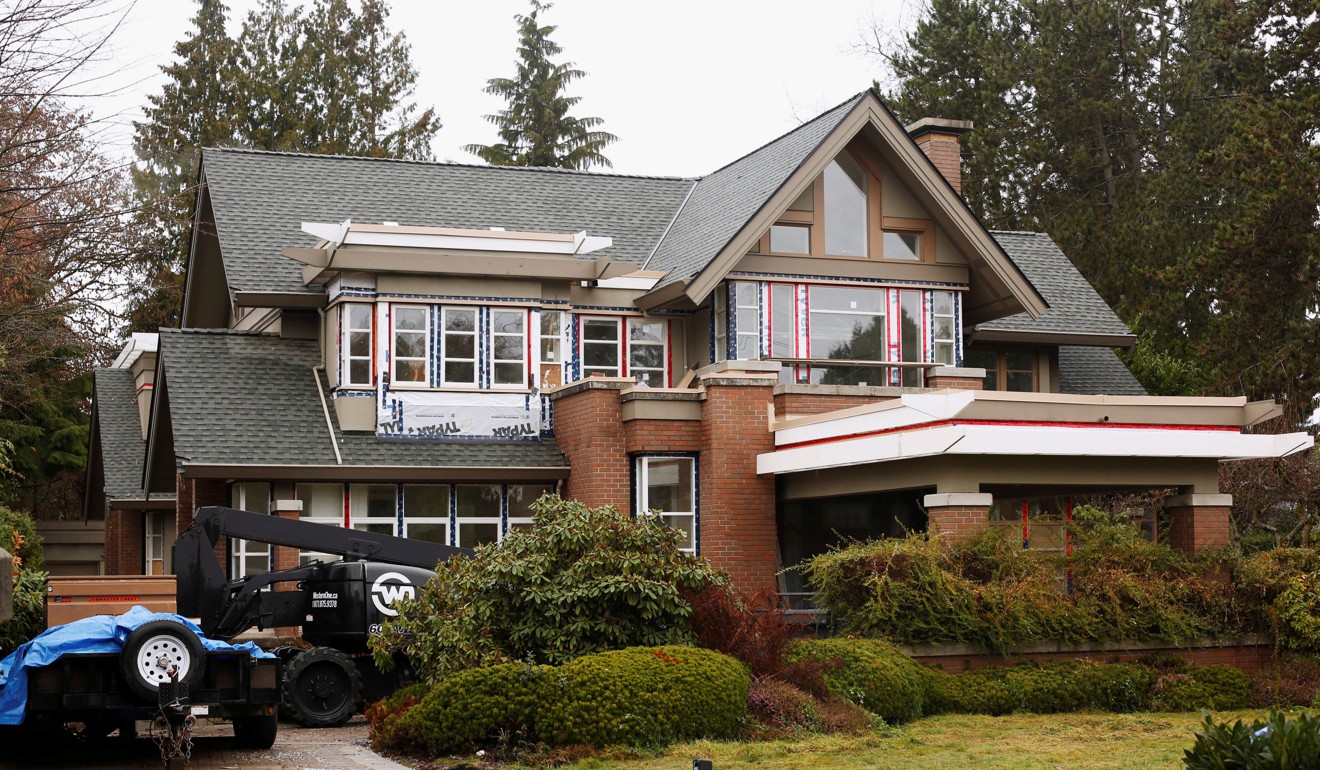
Canada denies abusing Meng Wanzhou’s rights, saying border officers used ‘usual customs processes’ when they took her phones at airport
- Response to lawsuit by Meng says border officers were not acting on behalf of US prosecutors or Canadian police when they seized her electronic devices
- But Meng’s lawyers says her December 1 border examination at Vancouver’s airport was a ‘false pretence’ for her to be detained and interrogated
Canada has hit back at Huawei CFO Meng Wanzhou, saying its border officers only used “usual customs and immigration processes” when they seized her electronic devices and questioned her at Vancouver’s airport.
The claims came in a response to a lawsuit by Meng alleging that border officers worked with police to abuse her rights and illegally detain her six months ago. The response was lodged on Monday by a Department of Justice lawyer acting for the officers in the March 1 lawsuit.
Meng was arrested at Vancouver’s airport on December 1, by Canadian police acting on a US request. She is fighting extradition to the US, and is living in Vancouver after being released on C$10 million (US$7.5 million) bail.
“Although the CBSA [Canada Border Services Agency] officers were aware that the plaintiff was the subject of a provisional arrest warrant … they examined the plaintiff and her luggage only for immigration and customs purposes,” the response says.

Meng’s lawsuit says she was subjected to “unlawful seizure and search” of her electronic devices and luggage, and that she was unlawfully detained for three hours by the CBSA officers.
Her arrest was delayed by Royal Canadian Mounted Police “for the purpose of allowing the Unlawful YVR Detention”, the lawsuit says, and the CBSA officers were acting “on behalf of the RCMP and/or the US DOJ [Department of Justice] … to conduct an unlawful interrogation of the Plaintiff.”
Meng Wanzhou faces two-year battle, with January start to extradition case
But in response, the Canadian Department of Justice said the CBSA had informed the RCMP before Meng’s arrival in Canada that border officers would “conduct their usual customs and immigration processes in relation to the plaintiff in order to determine the plaintiff’s status in Canada and to ensure that her goods could be brought into the country”.

The response says Meng told border officers who stopped her after her arrival on CX838 from Hong Kong that she intended to leave the airport and drop off some belongings at one of her homes in Vancouver during a brief layover.
It was previously reported that Meng was simply changing planes on her way to Mexico.
The response denies another claim in the lawsuit, that the CBSA officers inspected the contents of Meng’s two phones and other electronic devices, violating her privacy.
Although a CBSA officer had Meng provide passwords for her two phones, “[at] no time did any CBSA officer examine the contents of the Electronic Devices or the Phones,” the response says.
The three hours that elapsed between Meng exiting her flight and the end of the CBSA’s examination of her was “within the normal time range” for such a secondary customs inspection”, according to the response. At no time during the process did she ask to speak to a lawyer, it says.
No more hoodies and yoga pants for Meng. She looks like she means business
However, the response also says that after Meng’s eventual arrest by RCMP constable Winston Yep, the CBSA handed over to police a handwritten note with her phones’ passwords, along with her devices and other belongings.
Afterwards, the CBSA contacted the police “to inform them that [the note] was created for the purposes of the CBSA file and requested its return”. But the note had already been entered as an exhibit in Meng’s extradition battle.
The justice department also denies that any RCMP officer has examined the contents of Meng’s phones or other devices.

Is she prisoner or boss? Meng Wanzhou’s private jailers act like bodyguards
It also denies that Yep was obliged to arrest Meng as soon as she had disembarked her flight, saying it was appropriate that he not interfere with “the orderly processing of the plaintiff for customs and immigration purposes”. Meng’s lawsuit says the border examination was a “false pretence” for her to be “detained, searched and interrogated”.
Meng is seeking a declaration that her Canadian Charter rights were violated, damages and costs.
On Thursday, the British Columbia Supreme Court set January 20, 2020, as the formal start of Meng’s extradition hearings, which are expected to last until October 2020.
She faces extradition to the US to face fraud charges related to Huawei’s alleged breach of US sanctions against Iran.

